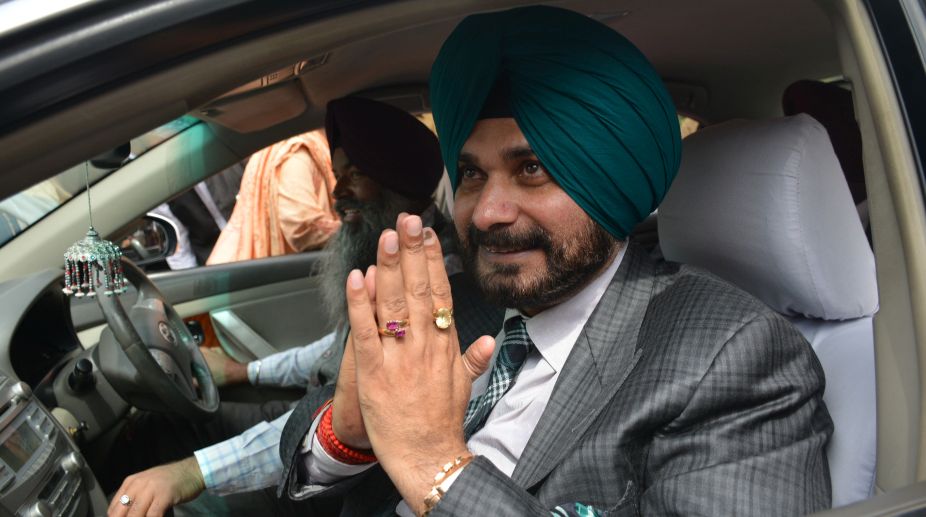SC seeks number of FIRs registered in instant triple talaq cases
Triple talaq ceased to exist on August 22, 2017, when the Supreme Court declared it void.
Sidhu and his cousin RS Sandhu had beaten up Gurnam Singh and two others in what was described as a road rage case

Navjot Singh Sidhu (Photo: Pardeep Saini)
In a big relief to Congress leader and Punjab Tourism Minister Navjot Singh Sidhu, the Supreme Court has absolved him of the culpabale homicide charge for which the high court had awarded him three-year jail in 2006. The Supreme Court found him guilty of ‘voluntarily causing hurt’, for which he has been slapped a fine of Rs. 1,000.
The road rage case against Sidhu dates back to year 1988.
Advertisement
A bench of Justice J. Chelameswar and Justice Sanjay Kishan Kaul had reserved the judgment on April 18 after hearing arguments from counsels of the Punjab government as well as Sidhu and his cousin.
Advertisement
As per the prosecution, on 27 December 1988, Sidhu and his cousin Rupinder Singh Sandhu beat up Gurnam Singh and two others in what was described as a road rage case. Gurnam Singh later died.
On April 12 this year, the state government had supported the Punjab and Haryana High Court’s order to convict Sidhu in the case. It had told the apex court that the 65-year-old victim had died after a fist blow from the cricketer-turned-politician.
The state said there was no evidence to suggest that Gurnam Singh died of cardiac arrest and not brain haemorrhage. In 1999, the trial court in Patiala had acquitted Sidhu and his cousin, saying that the medical report stated the death was due to a heart attack.
The High Court in December 2006 overturned the lower court’s decision and said Gurnam Singh did not die of cardiac arrest but due to the injury to his temporal lobe. Sidhu was awarded three years in jail for culpable homicide not amounting to murder.
The apex court in 2007 stayed the conviction after Sidhu’s counsel contended that the High Court findings were based on opinion and not on medical evidence.
Sidhu’s lawyer argued that there were deficiencies in the medical evidence and the prosecution witnesses had given different statements on oath before the trial court.
Advertisement